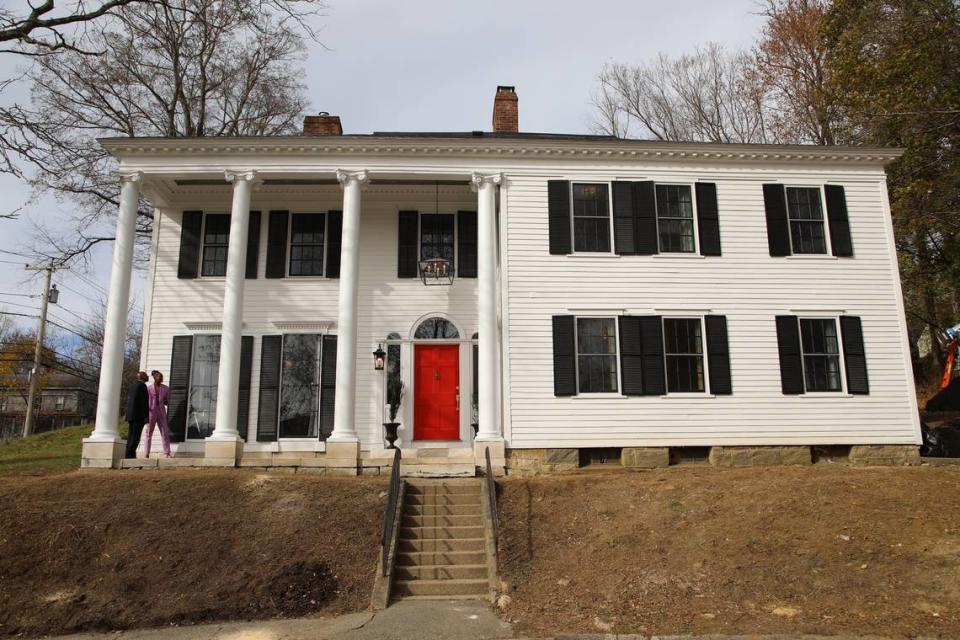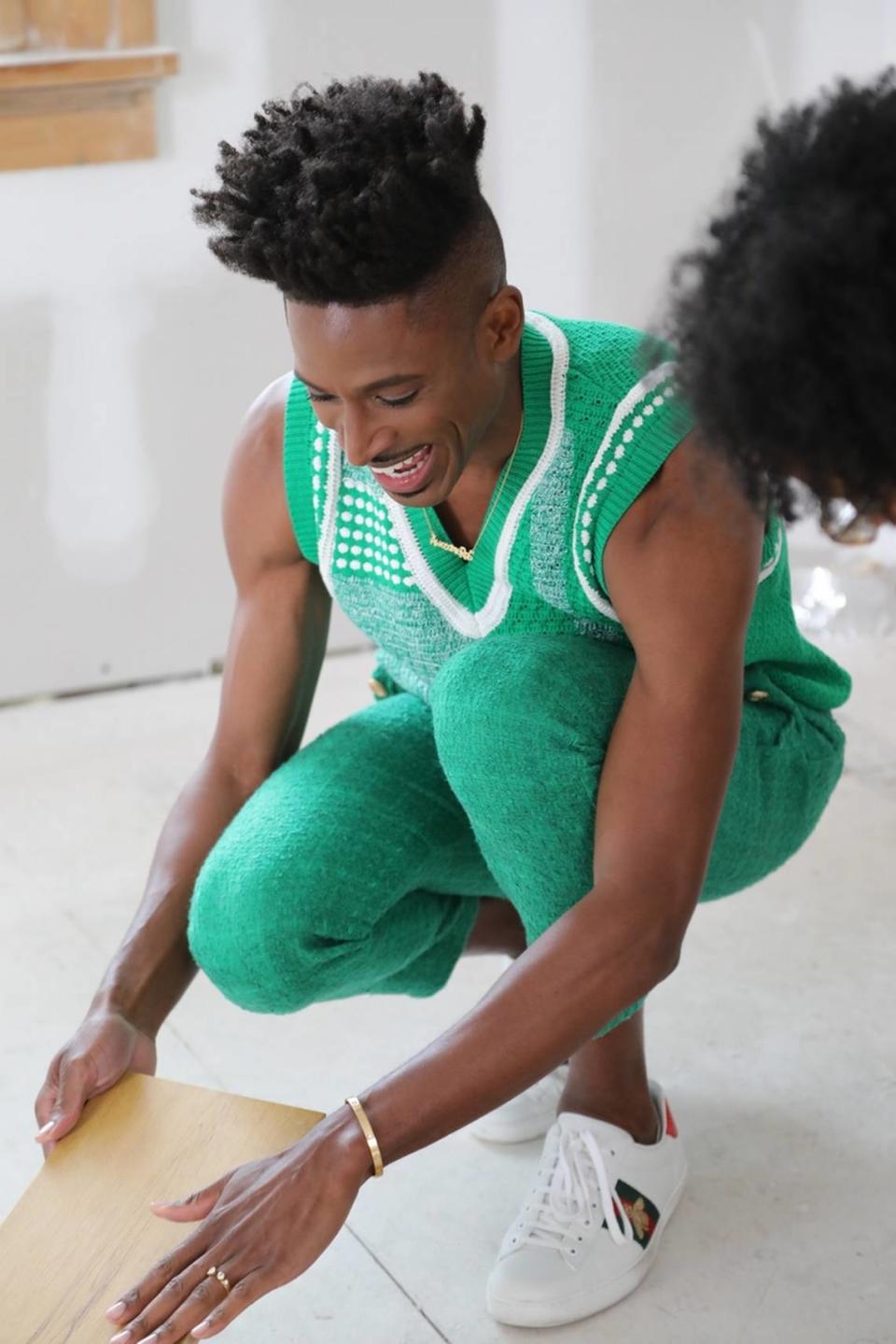This 200-year-old, plantation-style home gets its first Black, gay owner. And a TV tale.
Four years ago, Broadway actor and Raleigh native Robert Hartwell declared his plans to buy a 200-year old plantation-style house in Massachusetts — hailing his decision as a “generational move” for a gay, Black man like himself.
His Instagram post exploded online in the middle of strife over the global pandemic and George Floyd’s murder, and when a real estate agent cast doubt over Hartwell’s ability to meet the cash-only requirement, he responded, “Don’t you ever underestimate a hard-working Black man.”
On Thursday, Hartwell unveils “Breaking New Ground,” a six-episode streaming saga in which he transforms a crumbling mansion in the Berkshires into his personal castle, mixing in self-discovery, a deep history dive and the rare element of likable characters on a home-improvement show.

Airing on the Max streaming service, the show follows Hartwell from his first lovestruck walkthrough to his budget-busting discovery that a river flows underneath his foundation. Along the way, he discovers that census records for his 1820 house show three nameless tally marks — likely Black servants.
In the show, he vows not only to relocate from his New York apartment to rural New England but to do so with style and a $1.5 million home-improvement loan. The results spill out in weekly episodes each Thursday from here to August.
“It’s about drenching the place in color,” he says in the first episode, “so when people come in they realize I am royalty. I deserve to be here. ... I want you to step into this space and feel like your crown has been straightened.”
Home in Raleigh for a preview
On Monday night, Hartwell returned to his hometown and previewed the first episode of “Breaking New Ground” at the Rialto Theater, recalling for the audience of several hundred that he first dreamed of performing on Broadway at age 7. A product of Raleigh Little Theatre and NC Dance Institute, Hartwell made it there by age 23, debuting in the original Broadway cast of the musical “Memphis.”
From there, he founded The Broadway Collective, teaching new performers as the only Black CEO in New York’s musical theater education. He celebrated this in Raleigh on Monday while his old teachers applauded.
“I just have to say glory to God in the highest,” he told the crowd. “It is so good to be home. This should not be a first. This should be an everyday occurrence.”

In 2020, Hartwell launched into new life when he found the ad online for a 4,000-square-foot house in Great Barrington, Mass., nearly three hours by car from New York but worlds apart in every other way.
The first episode of “Breaking New Ground” shows Hartwell visiting the local farmer’s market while dressed in a knee-length pink coat.
“Look how local I look!” he announces to new friends while buying leafy vegetables.
“You do not,” a vendor replies.
Millions get spent quickly
Hartwell paid $379,000 in cash for his Massachusetts home, adding $1.5 million in improvement costs and expecting nine months for renovation.
But true to any home improvement show, the cost overruns immediately spill in as he learns the concrete foundation is crumbling under a stream pouring from a busted water line. The hardwood floors in the parlor had to be replaced, and to his disappointment they weren’t original. The parlor alone cost $195,000 to spruce up — $45,000 over budget.

But “Breaking New Ground” adds to the familiar financial headaches found in home improvement shows by branching into both personal and early American history.
Paulette’s Parlor
Early on, Hartwell decided to name his parlor for his Aunt Paulette, who died from COVID-19 in 2000. While grieving in New York, he began flipping through advertisements for houses to help him escape the city.
Hence Paulette’s Parlor.
While exploring his new home, he discovered a servant’s staircase and the tally marks from the 1820 census. He further learned that NAACP founder W.E.B. DuBois had been born in Great Barrington, and that the family that owned his new house had once employed DuBois’ mother.
As the show unfolds, he notes that slavery was still legal in 1820 throughout much of the United States, though not in Massachusetts.
Still, he said, his house holds rooms he could not have entered 200 years ago.
In the show, he considers the servants’ stairs and notes, “Somebody worked hard up and down those stairs. ... I wish I could tell them a free, gay Black man was going to own it and fill it with love.”
‘Breaking New Ground’
The first episode of “Breaking New Ground” debuts Thursday on the Max streaming service (formerly HBO Max). Additional episodes will premiere on the next five Thursdays on Max.


